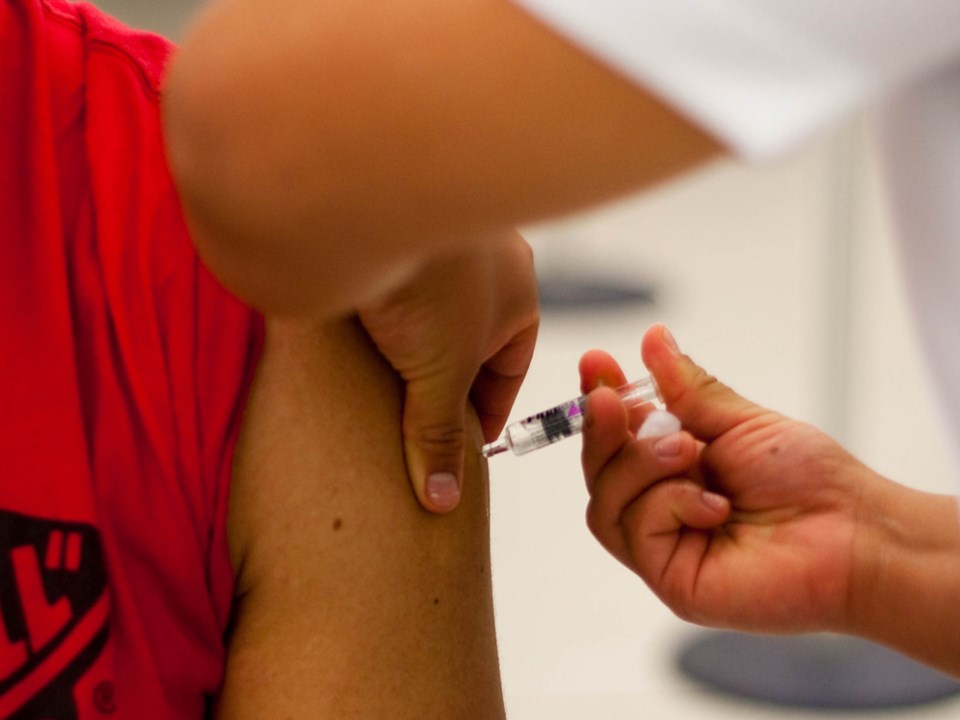The flu season hasn’t reared its ugly head in Canada just yet, but Sun Country’s recently appointed medical health officer Ross Findlater, said the flu vaccine will once again play a big role in preventing the virus from spreading.
“It’s a good vaccine and the technology has been around for quite a while so it has an extensive track record of safety,” Findlater said. “Protect yourself and those around you.”
He strongly encouraged people over the age of 65 to get the vaccine, alongside anyone with chronic medical conditions and marked obesity. People in any of these scenarios run a high risk of obtaining a serious disease if they catch influenza. This includes pregnant women. Young children, whose immune systems are still in the process of maturing, should be getting vaccinated.
Findlater noted the flu season has emerged in October in previous years and usually lasts until March or April. It typically begins in November, however.
“Some years we’ll have an early influenza season and we’ll know by this time what exactly is going to be around, but this year isn’t one of those, which I guess is a good thing,” he said, noting the extended warm weather may have something to do with it.
Influenza strains change every year, Findlater said, and as it circulates in different countries and different seasons, alterations to the genetic structure of influenza occur. Once these slow changes are documented and analyzed the strain gets a different name and a new vaccine is then created to match that new virus and its properties.
“The World Health Organization makes recommendations twice a year now, one for the influenza season in northern hemisphere and another for the southern hemisphere, and it’s certainly not a perfect prediction process but it’s pretty good,” he said.
Findlater discovered through studies that these predictions have an accuracy rate of around 80 to 90 per cent.
Most vaccinations are administered with a needle, but alternate options for children between the ages of two and 17 exist in the form of a nasal spray. The spray, which houses a slightly altered vaccine that includes a fourth strain of the virus, is injected into each nostril. Adults up to the age of 59 have been known to use the nasal spray as well, but people who have a serious phobia with needles typically use them.
“The particular advantage of the nasal vaccine is that it does seem to work better than the injectable vaccine in younger children,” Findlater said.
The medical health officer acknowledged the many misconceptions surrounding the flu vaccine, including claims that people who get the vaccine still get the stomach flu, a general description, Findlater said, of basically anything that causes vomiting or diarrhea.
“The flu vaccine doesn’t have anything to do with that,” he said. “It doesn’t protect you from what people call the stomach flu.”
Regular colds, which usually result in a runny nose and a slight fever, are not combated by the vaccine, either. Findlater added people who haven’t received the flu shot in years and decide to get it now will receive the same level of protection as anyone else their age.
Symptoms of an influenza virus often include a sore throat, high fever, muscle pain and coughing.
“It might give you a bit of a runny nose as well,” he said. “Sometimes there are stomach symptoms but they’re usually not as prominent as the respiratory symptoms and the coughing.”
The influenza virus typically lasts up to a week, and people who have received the vaccine can still obtain a milder version of the virus. Findlater said studies have shown that healthy adults who receive the vaccine have an average level of protection against getting influenza of approximately 80 per cent. Children between the ages of five and 18 have a protection level of about 65 to 85 per cent. The vaccine’s effectiveness, Findlater explained, has a lot to do with how strong a person’s immune system is.
Anyone looking for places to receive the vaccine can go to Sun Country Health’s website at www.suncountry.sk.ca.



